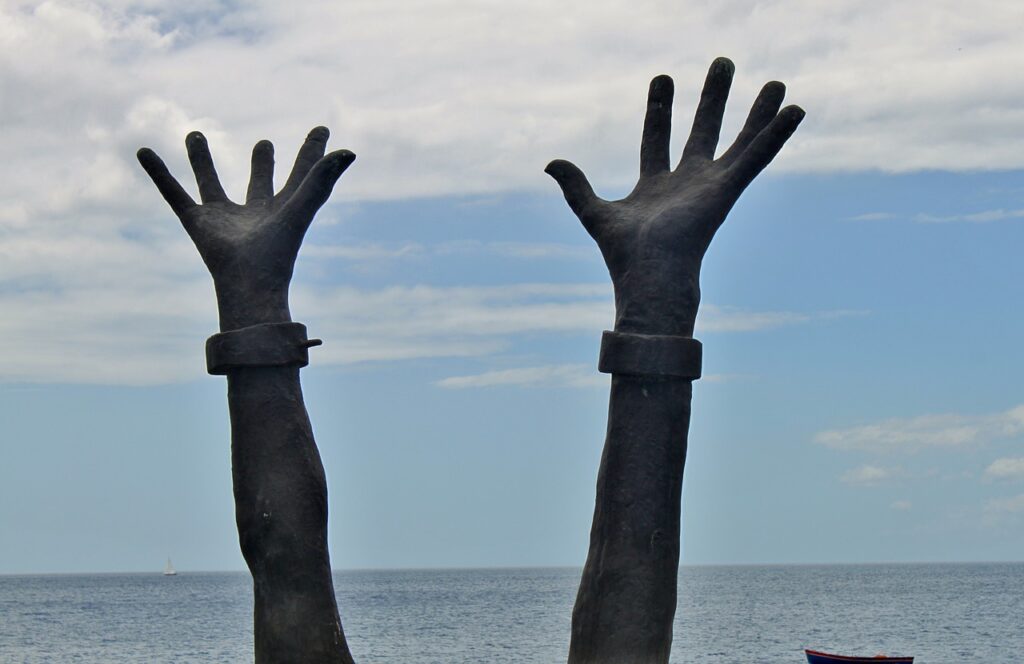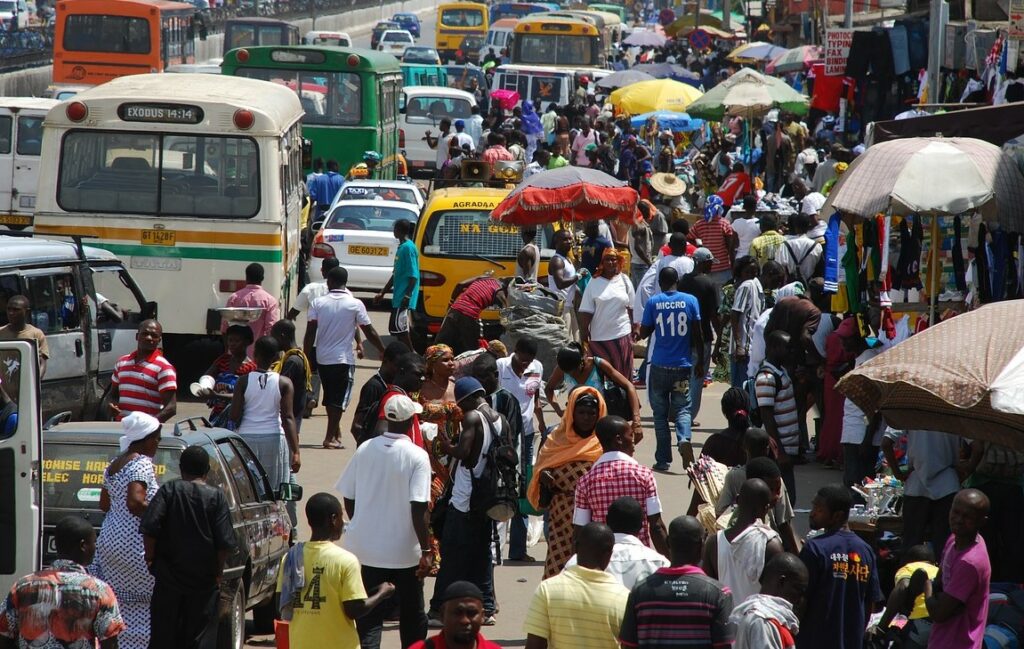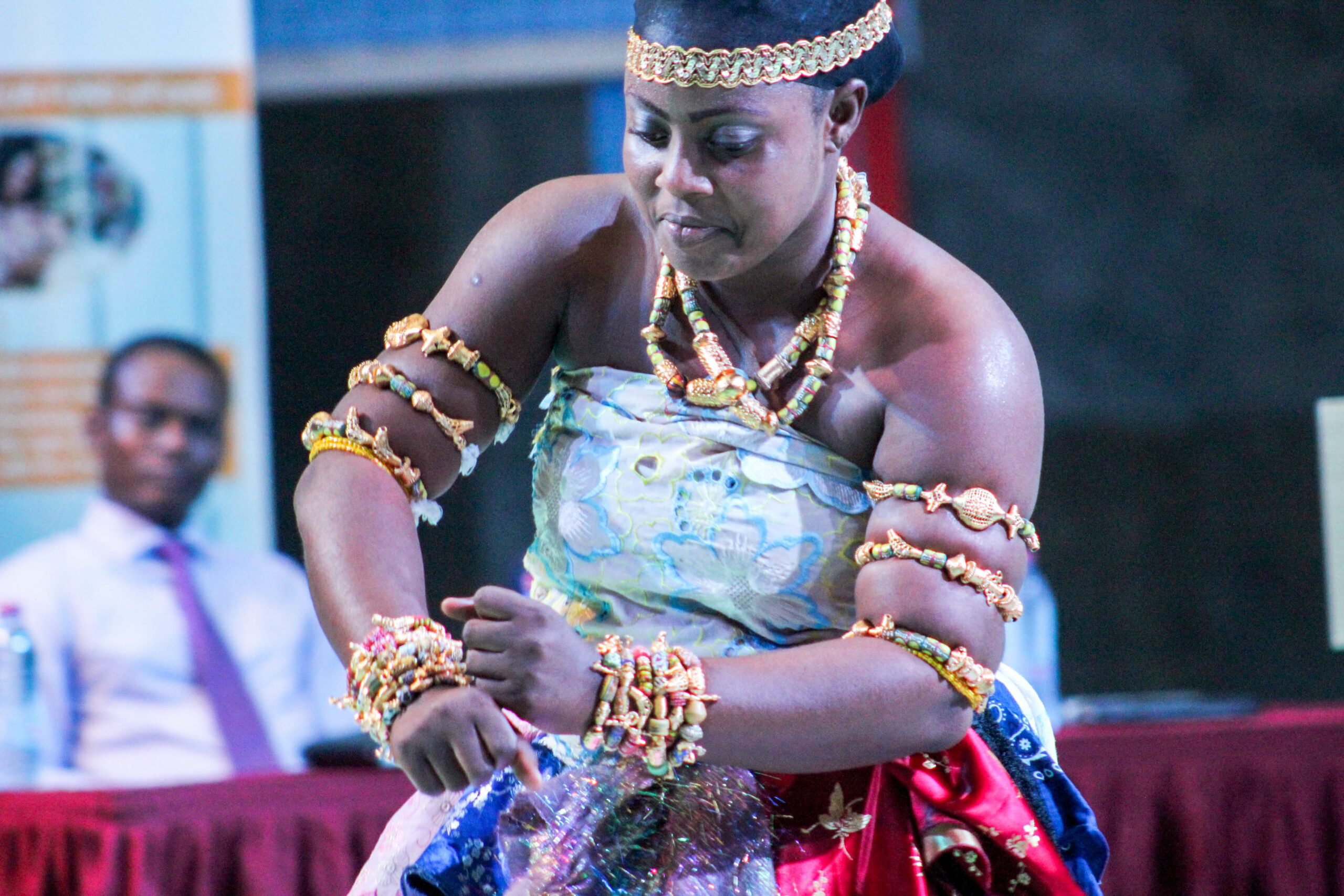Ghana welcomes African diaspora
August 9
Akwaaba! Ghana is rolling out the red carpet for the descendants of slaves and Africans in the diaspora to mark the 400th anniversary of the arrival of West African slaves to the USA. Many of their ancestors may have been taken away in chains against their will. But their descendants are returning voluntarily to connect to the ‘motherland’, writes 26-year-old Commonwealth Correspondent Michael Gyekye.
In 1619, the first recorded slave ship arrived in Virginia, USA, carrying its human cargo of those who had survived the grueling transatlantic journey. Four centuries later, and in the spirit of the leadership that inspired pan-Africanism, Ghana is throwing open its doors to say akwaaba (welcome) to people of African descent and Africans living outside the continent to visit their ancestral home.
Under the patronage of President Nana Addo Dankwa Akufo-Addo, Ghana designated 2019 as the ‘Year of Return’. The country is staging a historic commemoration of the start of the transatlantic slave trade, in which Ghana played a prominent role as a trading hub. Dozens of former slave-holding forts and castles still remain as evocative reminders. According to CNN, an estimated 75% of slave dungeons in West Africa were in Ghana.
Numerous activities have been organized. The Year of Return coincided with the biennial PANAFEST, a cultural event held in Ghana for Africans and people of African descent. This year’s PANAFEST celebrations included various local and international events designed to help people reflect on their ancestry, feel welcomed back to their ancestral land, and be part of writing a new chapter in the history of the continent.
Local tourism is set to receive a big boost. Thousands of international visitors are expected to visit Ghana throughout the commemorative year. Over the 2018 Christmas season, celebrities including Boris Kodjoe, Naomi Campbell and Idris Elba visited Ghana as part of the Full Circle Festival.

More recently, in July, US House Speaker Nancy Pelosi, actor Samuel L. Jackson and singer Deborah Cox were in town. Speaker Pelosi led a delegation comprising 12 members of the Congressional Black Caucus, including House Majority Whip James Clyburn and Rep. Ilhan Omar.
The delegation visited the Cape Coast and Elmina Castles and the “Door of No Return,” from which thousands of Africans left, never to see their homeland again. Elmina Castle was the first European slave-trading post erected in sub-Saharan Africa.
Other tourist companies and organizations have also been cashing in by offering tour packages to various historical sites and experiences, including trips to the Ashanti Kingdom, famed for its gold, and an opportunity to participate in a traditional naming ceremony, complete with certificates displaying their new local names.
The Year of Return will undoubtedly raise Ghana’s cultural stock globally. It serves as a powerful rallying call to all people of African descent and lovers of the continent to have meaningful introspection and dialogue on black and African unity, solidarity, and our enduring battles against the ills of poverty and prejudice.
One might even hope the success of the campaign would encourage the African Union (AU) to adopt a ‘Decade of Return’ that pursues the goals of the Year of Return on a higher scale, and with greater vigour. The impact on the development of the continent and Africans worldwide could be staggering.
Ghana’s Year of Return has inspired the consideration of a Diasporan Bill, envisaged to attract back home members of the Ghanaian diaspora who have foreign citizenship. It is aimed at easing their full reintegration by dismantling existing laws that prohibit them from holding political office. This may entice home many highly-skilled Ghanaians abroad to support the country’s development and attract their investment.

The Year of Return has also rekindled Ghana’s diplomatic and socio-economic ties with some black-majority nations and former freed slaves colonies in the Caribbean. Ghana now has a reciprocal visa-free agreement with Jamaica. This was announced on President Akufo-Addo’s recent visit to Kingston as part of a Caribbean tour to promote the Year of Return. Ghana has also agreed to send nearly 400 nurses to shore up the deficits in Barbados.
In the same pan-Africanist spirit, Ghana is granting visas on arrival to citizens of all African Union member states (except those that are visa exempt), one of the few African countries to do so.
Ghana’s reinvigorated fervor for black unification, solidarity and progress-oriented pan-Africanism, has also inspired its recent successful bid to host the Secretariat of the newly-launched African Continental Free Trade Agreement (ACFTA) in the capital, Accra. The AFCTA aims to remove trade barriers and create a duty-free single market for African countries.
If a single African country can achieve all these with such a vision, imagine the gains the entire continent could make with a similar orientation.
Indeed, I feel proud as a Ghanaian living through this moment and hope the country builds on its successes for greater developmental benefits.
Hopefully, a century from today, Africa and the international Black community would be marking something even more profound. Until then, let’s clear the streets of Accra, Cape Coast, Lagos, Kinshasa, Algiers, Addis Ababa and Cape Town, to welcome home all sons and daughters of Africa. Akwaaba (welcome), my lovely African brothers and sisters!
Photo credit:
Slavery image by orythys from Pixabay
Street life image by jozuadouglas from Pixabay
Adowa dancer image – Wikimedia Commons (no copyright infringement is intended
…………………………………………………………………………………………………………………
About me: I aspire to be a communications, management and policy development consultant. I am a graduate of B.A. Political Studies from the Kwame Nkrumah University of Science and Technology, Ghana. I am especially interested in politics, business, technology and sports. I love to read, write, facilitate programs, offer analytical commentary and travel
…………………………………………………………………………………………………………………
Opinions expressed in this article are those of the author and do not necessarily represent the views of the Commonwealth Youth Programme. Articles are published in a spirit of dialogue, respect and understanding. If you disagree, why not submit a response? To learn more about becoming a Commonwealth Correspondent, please visit: http://www.yourcommonwealth.org/submit-articles/




